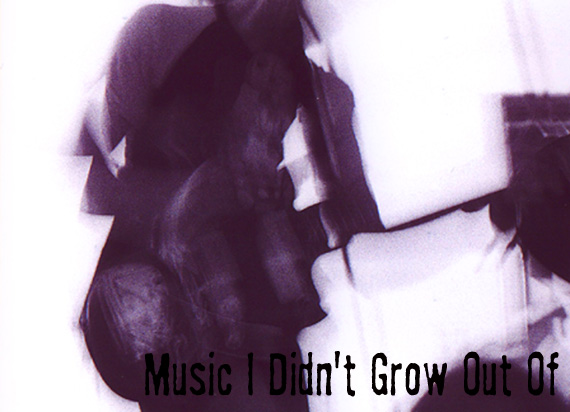
May 1995: I was about to finish grade 12-- there was less than a month to go, I had good enough grades that I wouldn't have to write final exams, and that left only one year before I'd never have to be in high school again. I was seventeen. I had access to a car, I had no curfew, I had a new girlfriend, and my parents had gone away for two weeks: soon I would be an adult, for real. It was warm enough that I could leave my windows open over night and wake up to the sound of birds and the smell of dew in the morning before school. When I drove to school, I did so with my arm out the open window and You Can Feel The Love In This Room on the tapedeck, because that's what this album sounds like, and that's what it's meant for.
By spring of 1995, the Offspring had been big for nearly a year, Green Day were huge, and NOFX was close behind, but pop punk hadn't quite yet lost all credibility. It's true that earlier that year I'd been roughed up in the hall at school by a couple of skate-jocks wearing NOFX t-shirts who called me a faggot because I had a mohawk and tattered clothes, but by and large pop punk still felt like it belonged to the socially inept, the geeks, and the earnest youth. All of which was me.
Enter Sicko, a band that masterfully illustrated the basic principle from which all pop punk extends: if melody and harmony are good things, then increasing the speed of the music that contains them should result in a higher density of melody and harmony packed into each minute, and amplifying the music to the point of distortion should improve the volume of melody and harmony the listener may absorb.
Proceeding from this principle, behold You Can Feel The Love In This Room, which my then-mohawked friend Neill called (albeit reverently) "the most candy-assed record I've ever heard." The melodies on this record-- sung in nerdy voices hoarse and breaking-- indeed will, as Neill went on to warn me, rot your teeth. The dumb songs really are dumb and worth skipping (songs about Star Trek, Carl Sagan, and wisdom teeth did not do it for me then and do not do it for me now), but the good songs consistently hit the ball out of the park. Album opener "Where I Live" is an adrenalized nod to hesitation and anxiety that to this day thrills me with its velocity and grit. It joins songs elsewhere on the record about failure, nostalgia, death to maintain an undercurrent of melancholy and dread by whose contrast the sunny high-test pop is given vivid depth and irony. Throughout the pace remains high, the guitars propulsive and distorted, and tone plaintive. On my vinyl LP the production is such that it sounds just a little distance away, as though there's the distance of a summer's breeze between me and the music. That's the way I like it.
The record ends with an earnest cover of the Indigo Girls' "Closer To Fine," which, though played several times faster and a hundred times louder than the original, is perfectly respectful. It's a good song to begin with, Sicko forces us to admit, but it sounds a lot better if you can shout along with it while keeping rhythm on a steering wheel with your bass-drum foot on the gas, speeding forward into the future.



No comments:
Post a Comment